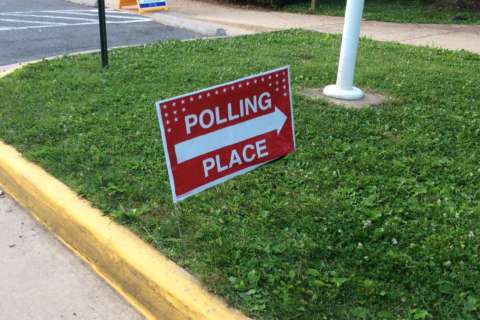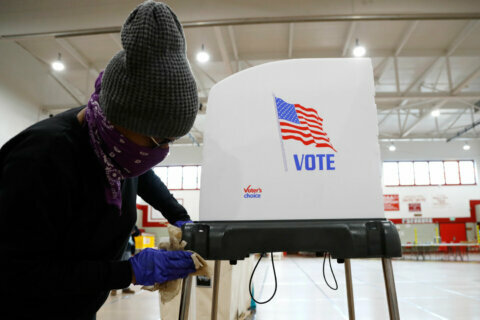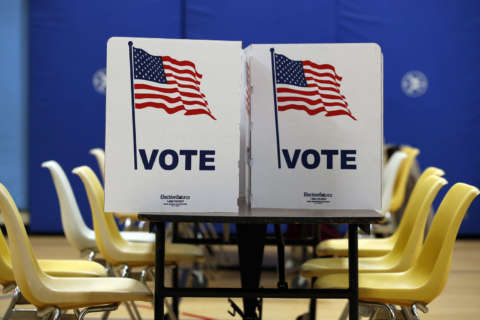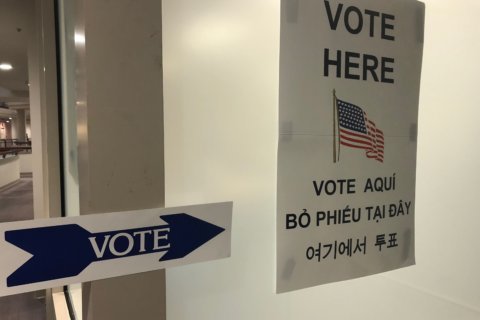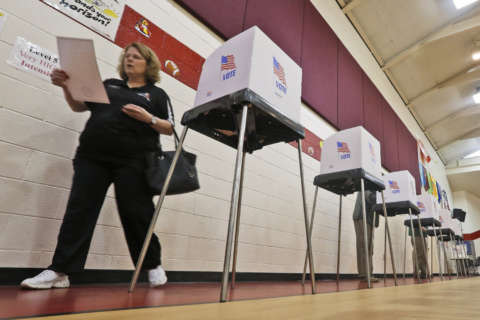Editor’s note: This is one in a series of pieces on Virginia’s June 12 primaries. WTOP interviewed all candidates in contested local races. See all of WTOP’s primary coverage on our Elections and Politics page.
WASHINGTON — The two Democrats hoping to take on Rep. Dave Brat in November are focused on some similar issues, but also have some key differences.
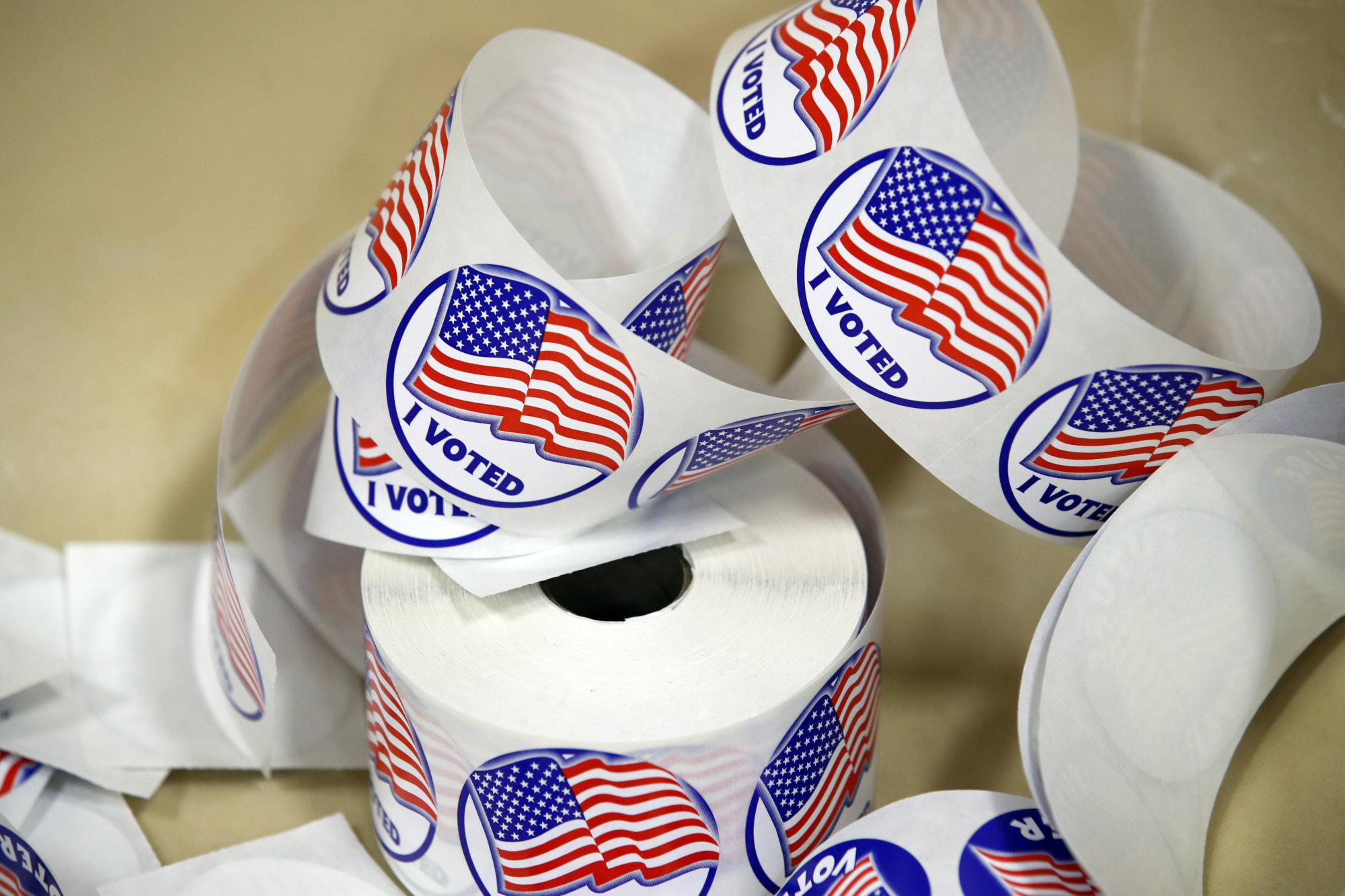
Abigail Spanberger, a former CIA officer, and Dan Ward, an airline pilot who served 25 years in the Marine Corps, each highlighted health care in separate interviews as their top issue.
“There is a lot that we can do to ensure that we are strengthening the ACA (Affordable Care Act), that we are ensuring stability in the marketplace, and so that people can afford their health care and that people aren’t losing coverage and aren’t, in so many cases, ending up going bankrupt over health care costs,” Spanberger said.
Ward would also include a public option for anyone who chooses to buy into Medicare, but emphasized that would only be a first step.
“It allows these people who have been told how terrible government health care is to actually get health care and to see it’s really quite not terrible, because I had it my whole life in the Marine Corps,” Ward said. “I see this as a pathway to single-payer, because I’m tired of people talking about access to health care. People need health care, and they need affordable health care.”
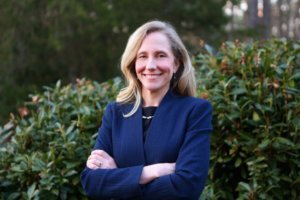
Virginia’s 7th Congressional District runs south from Culpeper and Spotsylvania past Richmond through Henrico and Chesterfield, including a number of areas that do not have reliable high-speed internet access.
Both Democratic candidates emphasize the need to expand broadband to provide more job and educational opportunities and make living in the district better. Ward would want to do that through a larger infrastructure bill that also addresses roads and bridges.
“Where I live, in Orange County, and lots of the rural parts of this district, there’s no cell service; there’s no broadband internet, and how are we supposed to compete in a modern economy if you can’t even get online,” he said.
Ward wants to repeal the tax cuts passed last year.
“That money should have been used in real infrastructure — roads and bridges, broadband,” he said. “The bill is coming due, and it’s time for us to start doing that construction work. And listen: Those are jobs that are going to go right here in the district to local contractors.”
Ward also wants new consideration of Virginia Railway Express commuter rail service between D.C. and Charlottesville, a project that would likely be priced at many billions of dollars.
“What this administration is proposing for infrastructure right now is shameful. It’s tolls. It’s privately funded, guaranteed profit, that we’re going to have to pay back in tolls,” Ward said. “We need to repeal that tax bill and we need to take that money, and let’s put it right here in central Virginia in infrastructure projects.”
Spanberger sees broadband and traffic problems as an opportunity to reach across the aisle, or across state lines, to create coalitions in Congress with representatives from other districts with similar needs.
As a CIA officer, she said, she would meet with people with whom she shared nothing in common with other than a desire to prevent war. Those meetings provided lessons in finding common ground, she said.
“My whole background is understanding really a variety of issues at a very, very deep level,” she said.
Making a difference on Capitol Hill starts one person at a time, she said.
“It’s one conversation at a time; it’s not falling into the same traps where we look at things wholly in partisan terms,” Spanberger said.
“If we can start being more truthful and open about what our shared goals are, then I think we can increase the level of productivity and decrease, bit by bit, the level of partisanship and adherence to pure ideology that we see in Washington. And I am in no way naive to how difficult that will be, but we can’t begin to do it if we don’t try,” she said.
Why are you running?
Spanberger made the final decision to run for Congress after seeing current lawmakers vote last year to repeal Obamacare, she said.
“I was driven to run because seeing the divisive rhetoric coming out of Washington — watching people put political ideology over the needs of their constituents was no longer something that I could accept or watch,” Spanberger said.
“For me, while clearly the [Trump] administration is a motivator, and I have significant concerns about where we find ourselves this day and age, I am not running against Donald Trump. I endeavor to run against Congressman Brat and his record of votes and how they don’t align with the district,” she added.
Ward believes Congress has given up too much power to the president.
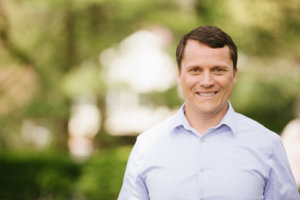
“I’m in this for the right reasons. I think that Congress has abdicated its responsibilities as a coequal branch of government, because they’re more worried about being re-elected than they are about doing their job,” Ward said.
He cited the continued use of the 2001 congressional authorization of the use of military force to justify military action around the world.
Ward promises to be straightforward and honest.
“If you don’t like what I do — and I will make those hard votes — then don’t re-elect me, and I’m OK with that,” Ward said.
“I’m very clear on health care; I’m very clear on infrastructure; I’m very clear on my stance on guns,” Ward said.
Odds of winning now? In November?
Each candidate is confident heading into the June 12 primary, but realizes that winning in November could be an uphill battle in the traditionally Republican-held district that Ed Gillespie won by about 3 percent over Ralph Northam in the governor’s race last fall.
“We’re working to mobilize voters because, when it comes to November, in order to win, we will only win this seat when every possible vote is mobilized,” Spanberger said.
“The 7th District is a changing district, and it’s a newly engaged district [since the 2016 election],” she added.
Ward believes a high turnout is key for him to win the primary, since he believes voters in more rural parts of the district would support him. That support would be necessary to beat Rep. Brat in November.
“I’m going to work hard on the rural areas, and so I think that that’s going to be the difference. Where I live is the heart of Dave Brat’s strength,” Ward said.
“There’s going to be an issue or two that some of his supporters are not going to agree with me on, but there’s going to be five or six issues that we will agree on,” Ward said.
He believes Virginia Gov. Ralph Northam could have done better in the district if there had needed to be more of a focus there to win the statewide race.

